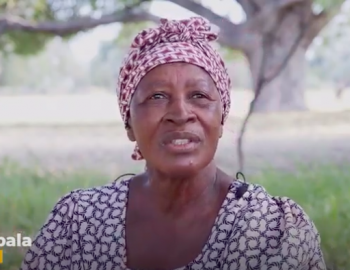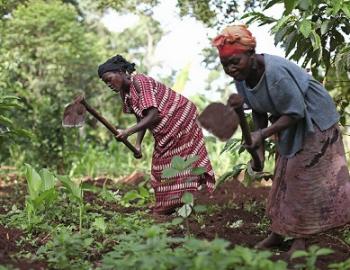REPORT: Impact of Climate Change on Water Resources, Agriculture and Food Security in the Ethiopian Rift Valley: Risk Assessment and Adaptation Strategies for Sustainable Ecosystem Services
REPORT: Impact of Climate Change on Water Resources, Agriculture and Food Security in the Ethiopian Rift Valley: Risk Assessment and Adaptation Strategies for Sustainable Ecosystem Services
Water availability, human health, food production and economic livelihoods in the densely populated Upper Awash Basin and central Rift Valley of Ethiopia are intrinsically linked. Surface water resources in this area of central Ethiopia face intense competition between agricultural and non-agricultural uses, and groundwater resources in this region are of poor quality for both food production and human consumption (containing high levels of fluoride, arsenic and other toxic naturally-occurring contaminants). The increased prevalence of drought as a result of climate change has the potential to amplify risks to human health by shifting reliance from scarce surface water to groundwater, which could affect the long-term health impacts of rural communities exposed to elevated levels of toxic elements in groundwater. Moreover, crop production could suffer from increased reliance on marginal quality water for irrigation.
This study, Impact of Climate Change on Water Resources, Agriculture and Food Security in the Ethiopian Rift Valley: Risk Assessment and Adaptation Strategies for Sustainable Ecosystem Services, investigates the linkages between climate change, water resource quality and availability, agricultural productivity, food security and livelihoods in the Main Ethiopian Rift, and informs decision-makers how adaptation to climate change impacts on water resources and agriculture might be enhanced.
Further reading:
This project and publication has been produced as part of the START call for research on the theme of ‘Climate Change, Agriculture and Food Security’ in Africa, with an emphasis on the sustainability of ecosystem services in Africa. Objectives of this call are to commission high quality, independent, policy-relevant and credible research to support policy making for sustainable development in the region, to build the capacities of regional research partners to conduct high level research and to create a platform for knowledge sharing at the regional level. The funding has been provided by US National Science Foundation, Climate Change, Agriculture and Food Security (CCAFS) and CDKN.
START homepage: START
Research call information: Regional Research Call – Africa
START projects:
- Safety Nets Simplified: Simulated Decision-Making in Volatile Developing Economies
- Management of Ecosystem Services of the Forests of Southwest Nigeria in Support of Rural livelihoods and Food Security
- Reducing tropical deforestation and the Protection of Ecosystem Services to support food security in Southwest Cameroon
- Sustainable Farmland management in the context of climate change in inland valleys of Southern Benin
- Changes in Tree Reproductive Phenology: Causes and Implications in and around Budongo Forest Reserve, Uganda
- Improving Seasonal Forecast Information for Managing On-farm Decisions
- Integrating Indigenous Knowledge and Scientific Methods for Flood Risk Analyses, Responses and Adaptation in Rural Coastal Communities in Nigeria
- Community-based management of ecosystems and natural resources for the improvement of rural livelihoods and food security in the Nigerian Savannah
- Engaging farmers and climatologists in Adaptation to climate variability and change in the Okavango Delta of Botswana
- The role of Urban and peri-urban agriculture in enhancing food security and climate change resilience in East and West African Cities
- Assessing Adaptation Responses by Smallholder Farmers in Northern Ghana to Climate Change and Biodiversity Loss
- The Impact of Climate Change on Food Security Among Coastal Communities of Keiskamma, in the Eastern Cape, South Africa
- Sensitivity of Coastal Lagoon Ecosystems to Climate and Related Global Changes: Developing a North African Lagoons Network



